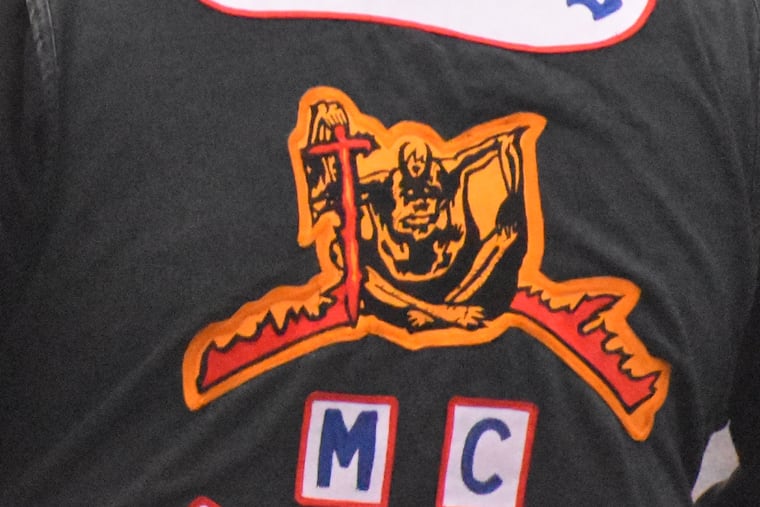Pagans biker club’s growing presence in New Jersey brings drugs, guns, violence, officials say
“They want to take over the entire East Coast,” said Edwin Torres, a special agent with New Jersey’s State Commission of Investigation, explaining how the outlaw club has expanded its influence throughout the Garden State.

TRENTON — The Pagan Motorcycle Club has spent the last two years expanding its ranks and spreading its violent influence, state investigators said Wednesday.
The club has become increasingly aggressive and confrontational with rival outlaw groups, officials said, taking a foothold in New Jersey with guns, drugs, and intimidation.
“They want to take over the entire East Coast,” said Edwin Torres, a special agent with the State Commission of Investigation. “It’s a change in paradigm. They were previously nomads, and now they want to stake their claim.”
Prosecutors and investigators detailed this surge at a hearing convened by the commission, a group formed in 1969 to dismantle organized crime groups.
In their testimony, the men and women analyzing this threat were joined by an unlikely group: alleged high-ranking members of the Pagans themselves.
Among them was Hugo Nieves of South Jersey, whom investigators believe to be the second-in-command of the national organization.
Like the Mafia dons and capos who were scrutinized before them, the alleged members of the outlaw club subpoenaed to appear before an SCI panel did little more than plead their Fifth Amendment right.
“It’s not the policy of this club for anyone to participate in any illegal activity,” Nieves said, moments after keeping mum about whether he was affiliated with the Pagans in the first place. “And that’s all I will say.”
The Pagans were founded in the 1960s in Maryland. Prosecutors believe the club now has 30 chapters in 12 states, with three groups in Puerto Rico.
For years, the Pagans’ influence was consolidated in the southern half of the state, including Camden, Gloucester, and Burlington Counties. Now, Torres said, it’s difficult to find a county free of the Pagans presence. The club has 17 chapters in the state, up from 10 in 2016, extending as far north as Bergen County. As many as 350 sworn members live in New Jersey, according to the SCI.
Investigators believe this expansion coincides with the election of Keith “Conan” Richter as president in 2018. Under Richter, the Pagans, long known as white supremacists, have begun to recruit Latino and African American street gang members into their ranks, according to Torres.
“It’s alarming to see such a dramatic change in such a short amount of time,” he said.
The Pagans are becoming more savvy, preferring to meet face to face and instructing members to communicate using encrypted messaging through WhatsApp. At large gatherings — including the annual “Roar to the Shore” that sees hundreds of Pagans descend on Wildwood — “undercover” Pagans perform countersurveillance on the law enforcement officials watching them, sometimes even employing drones.
“With the rapid expansion of the Pagans, we saw violence,” Torres said. “And there’s no indication that it’s slowing down.”
In the last two years, law enforcement agencies in New Jersey say, they have seen one to five violent incidents each month connected to the Pagans. One of the most well-publicized was a broad-daylight assault at a Newark gas station last year, when four men ganged up on a Hell’s Angel who had just fueled his bike.
The gang’s influence is potent: Some local law enforcement agencies find it difficult, if not impossible, to investigate the club, according to SCI agent Glenn Pender, because information is routinely leaked to members, often through women affiliated with the club and working as court clerks or police department support staff.
Pender also detailed how the Pagans are changing the way they traffic in methamphetamine, switching from manufacturing the drug themselves to aligning with Mexican cartels and distributing narcotics that have been smuggled into the country.
“This is a very-well organized group, contrary to what you may see in media of guys hanging out and partying,” Torres said. “This enterprise is very particular about how its business is done.”